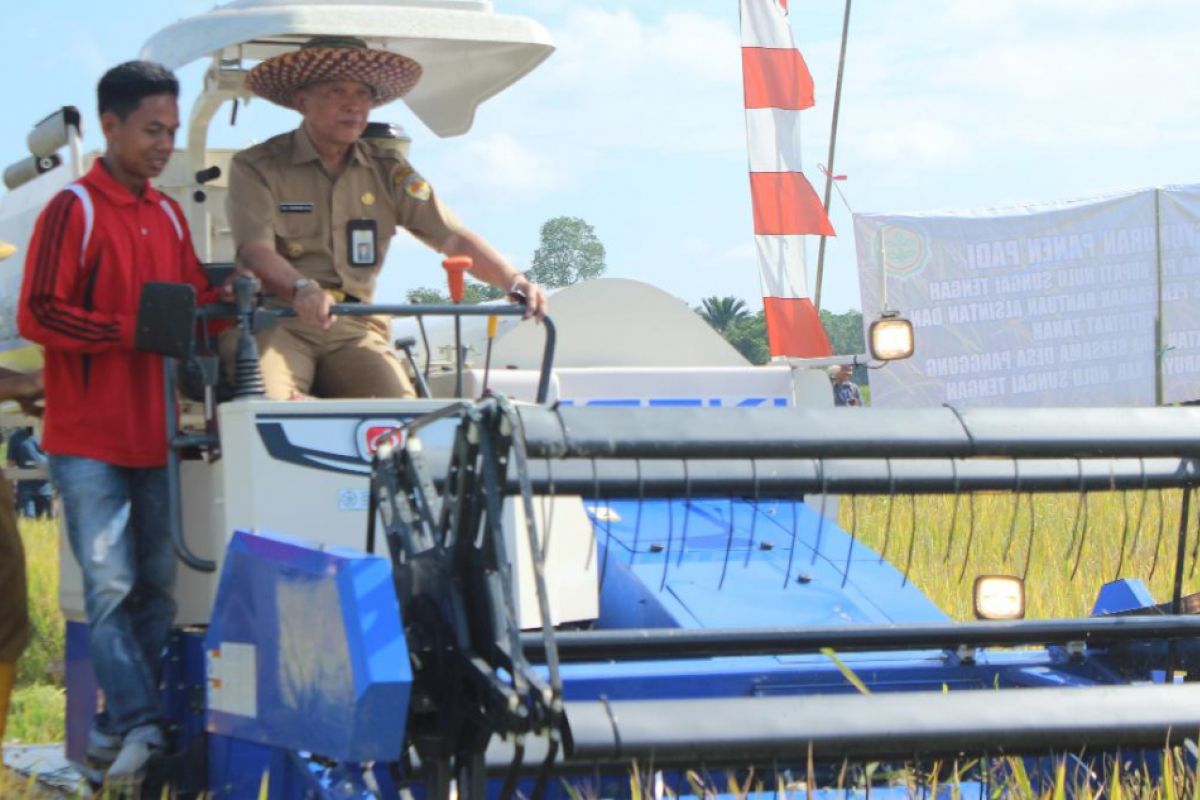"When the last tree is cut down, when the last river is emptied, and when the last fish is captured, then humans will realize that they cannot eat money".
The words quoted above seemed to be a whip for the community and the Central Hulu Sungai District Government, South Kalimantan, not to sacrifice the preservation of nature and the environment, for the sake of money or anything destructive to fulfill momentary ambitions.
Since the last few years, the community and the district government have worked hand in hand, united in rejecting the exploitation of the Meratus Mountains in their area, while consistently preserving it.
Through the Regional Medium Term Development Plan (RPJMD) which requires all development to continue to preserve the environment, the government seeks to protect the Meratus Mountains' natural resources.
The government seeks to protect Meratus, which contains various mining natural resources, to remain robust, untouched by the roar of excavators like other areas.
As one of several districts rich in natural resources in the form of mines, now HST is the only one that is free of coal mining activities and oil palm plantations in South Kalimantan.
Certainly, it is not easy to resist the temptation to easily obtain development funding sources and increase economic welfare from the mining sector. But the awareness to inherit a whole environment to posterity is a commitment that must continue to get support from all relevant parties, not only the community, entrepreneurs, local governments, but also the central government.
The struggle of the regional government to protect the Meratus Mountains from the greed of irresponsible parties is also manifested through hard work, opening up non-mining new economic growth centers.
Economy
Since being elected as Deputy Regent of Central Hulu Sungai (HST) in 2016 H Ahmad Chairansyah, who now serves as Regent of HST, has committed to reject coal mining and oil palm plantations.
Although it is known that mining resources are abundant, compared to other areas in South Kalimantan, but until now, the area is known to be fertile and is still good with its natural beauty.
The government is now focusing on building with environmentally friendly development, by strengthening the agriculture, fisheries and plantation sectors.
Carrying out the mission "The realization of the Central Hulu Sungai Community that is Religious, Independent, Prosperous and Dignified" the local government in collaboration with Lambung Mangkurat University (ULM) conducted a mapping of the potential of agricultural areas in accordance with each village condition.
As a result, several villages began to develop agricultural and fishery products. The village of Walatung, for example, known as the Pepuyu (climbing perch) fish village, focusing on nurseries, while the Binjai Pirua village with its cultivation.
Now, Walatung Village sells and supplies fish seed to various regions in South Kalimantan. While Binjai Pirua Village is a fishing destination tour with abundant yields.
Mahang Baru Village focuses on developing snakehead fish (locally known as haruan) and Samhurang Village with giant snakehead fish (tauman).
In the field of agriculture, all farmers group in HST were given tools and agricultural machinery (alsintan) assistance and the results were planting area target for rice covering 62,372 hectares were realized by paddy production of 243,268 tons. The average productivity was 5.4 tons per hectare.
The expansion of agricultural land on swamps has been cultivated in LAU Sub-District covering an area of 625 hectares and in Pandawan Subdistrict covering 500 ha.
Always surplus in rice production makes HST a rice barn that can meet the needs of several districts in South Kalimantan.
Supporting agricultural potential in HST, the Barabai Modern Business Agro Market was built, which became the place of transactions for agricultural products in Banua Enam and became the largest market in South Kalimantan that is neat, clean and beautiful.
Central Hulu Sungai is also known as an area with natural tourism potential that is quite beautiful and has always been one of the tourist destinations in South Kalimantan.
A district that is known to have produced reliable leaders, both at the district, provincial and national levels, is also known as a trading area.
HST is known as the center of trade in Banua Enam, which is well developed, and capable of lifting the economy of the community, just like the economy of the people who have now exploited their mines.
Yes ... the strong commitment and hard work of the local government and the Central Hulu Sungai community, have been able to prove to the world, by preserving nature, the welfare and economy of the community are still running well and so does preserving nature, for the sake of posterity.
"Take care of nature, surely human peace will be maintained and damage to nature will only cause disaster."
Antara award
Meanwhile, the Antara National News Agency (LKBN Antara ), as the only state news agency, is now making assessments to every district and city in South Kalimantan to give awards to regional heads who have a strong commitment to improving community welfare.
Chairman of the Assessment Team Syamsuddin Hasan said several indicators of regional program feasible to receive the award are consistency in the implementation of the program, it aimed to change the mindset of the community to be better, and able to encourage the welfare of the community.
In addition, it gets broad support from all parties involved and successfully implemented in accordance with the program set.










